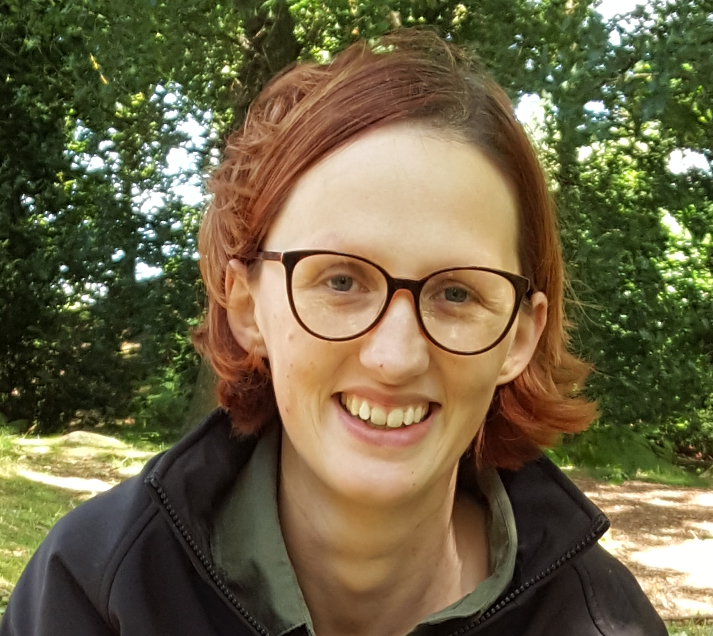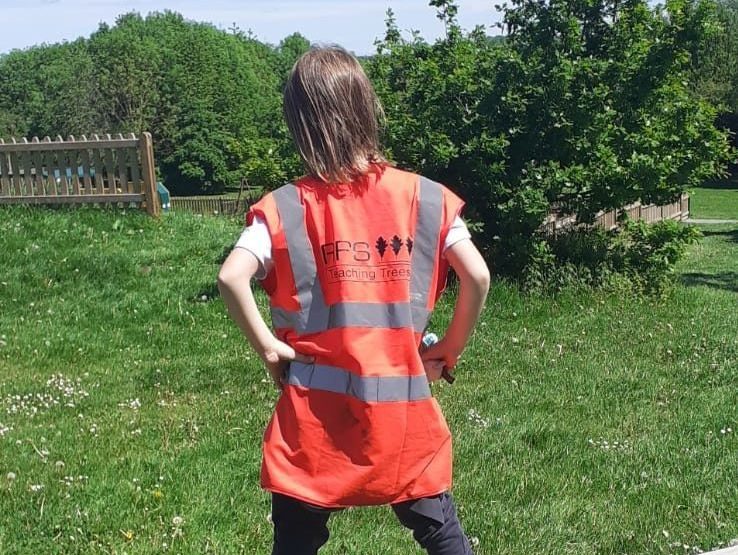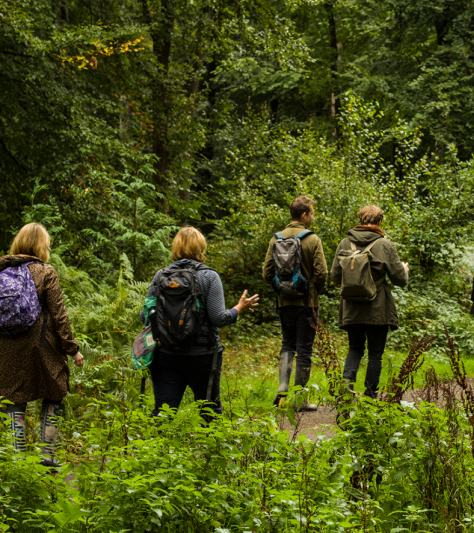RFS Learning & Outreach Manager: How I Got Here
Learning and Outreach Manager, Becky, writes the first in a new series of blogs discussing her career and how she gained her current position on the senior leadership team of the Royal Forestry Society.

What’s your current role?
I’m Learning and Outreach Manager for the Royal Forestry Society. My role is fantastically varied and ranges from hiring new Education Officers to talk to children age 3 and up about trees, through writing popular resources such as our Junior Forester Award and Green Tree Badge to leading our Forestry Roots programme which provides traineeships for young people looking for their first opportunity in our sector. I also sit on a lot of committees, including the Forestry Skills Forum and as co-chair of the Forest Education Network for England.
Did you always want to work in the forestry sector?
No, but like many of us, I knew I wanted to be outdoors. As a child I grew up in the suburbs of a large town, to parents who had no particular connection to the land based sector. Many of my happiest childhood memories were of being outdoors though; visiting my grandparents on the edges of Ashdown forest in Sussex, holidays to the Peak District, Snowdonia and the Yorkshire Dales and working at a local riding school where we rode the ponies through acres of Kentish apple orchards.
Through a lot of my school life I was keen to be a riding instructor, working outside and with my hands, but received the regular message from the school system that academic girls were expected to apply to top universities and get professional, indoor jobs. There was a clear message that my academic ability would not be used in an outdoor job and that I was mistaken in thinking that I would enjoy it.
What did you study?
I don’t know if I’m the only one in the forestry sector, but I’ve yet to meet anyone else with the same degree! I did BA (Hons) Politics and Parliamentary Studies at the University of Leeds. It was a brilliant course with fascinating lecturers and gave me the opportunity to undertake internships in both the Canadian and United Kingdom Houses of Parliament. I learned a lot about ethics, strategy, government policy, how to write and how decisions are made at the highest level. Whenever I had the opportunity though, I found myself drawn back to being outdoors. Riding loan ponies bareback through Leeds’ urban woodlands or spending the summer between my first and second years as a Volunteer Researcher in the forests of the Tanzanian National Parks.
What was your first job?
Although I loved the world of politics, I knew by the end of my degree that I didn’t want to live within commuting distance of Westminster for the rest of my working life so I qualified as a History teacher. I taught in secondary schools for 11 years, teaching History, Politics, Religion, PSHE and Geography.
How did you get into forestry?
After I had my daughter, I knew that I didn’t want to go back to the hours required of a secondary school senior leader and so decided to make a complete career change. I considered what I really loved doing and realised that I still wanted to work with people but that I wanted to do it outdoors. I qualified as a forest school leader in 2017 and set up my own freelance business.
How did you join the RFS?
The opportunity to join the RFS as a freelance contractor came up and I jumped at the chance to do the thing that I loved but with the backing of a respected national organisation behind me. I was a freelancer for almost a year before being taken on as staff to run the Teaching Trees programme at the end of 2018.
What do you love about your current role?
I get to do something that makes a difference. And I get to spend a lot of time outdoors, meeting fascinating people, seeing some incredible places. I’m just a very small part of a sector that is at the forefront of tackling the climate emergency, arguably the biggest single challenge facing our world today.
What one thing would you tell your younger self starting out?
No experience is ever wasted. Even if you decide to take your career in a different direction, you will have so many transferable skills that you can bring to your next job.


